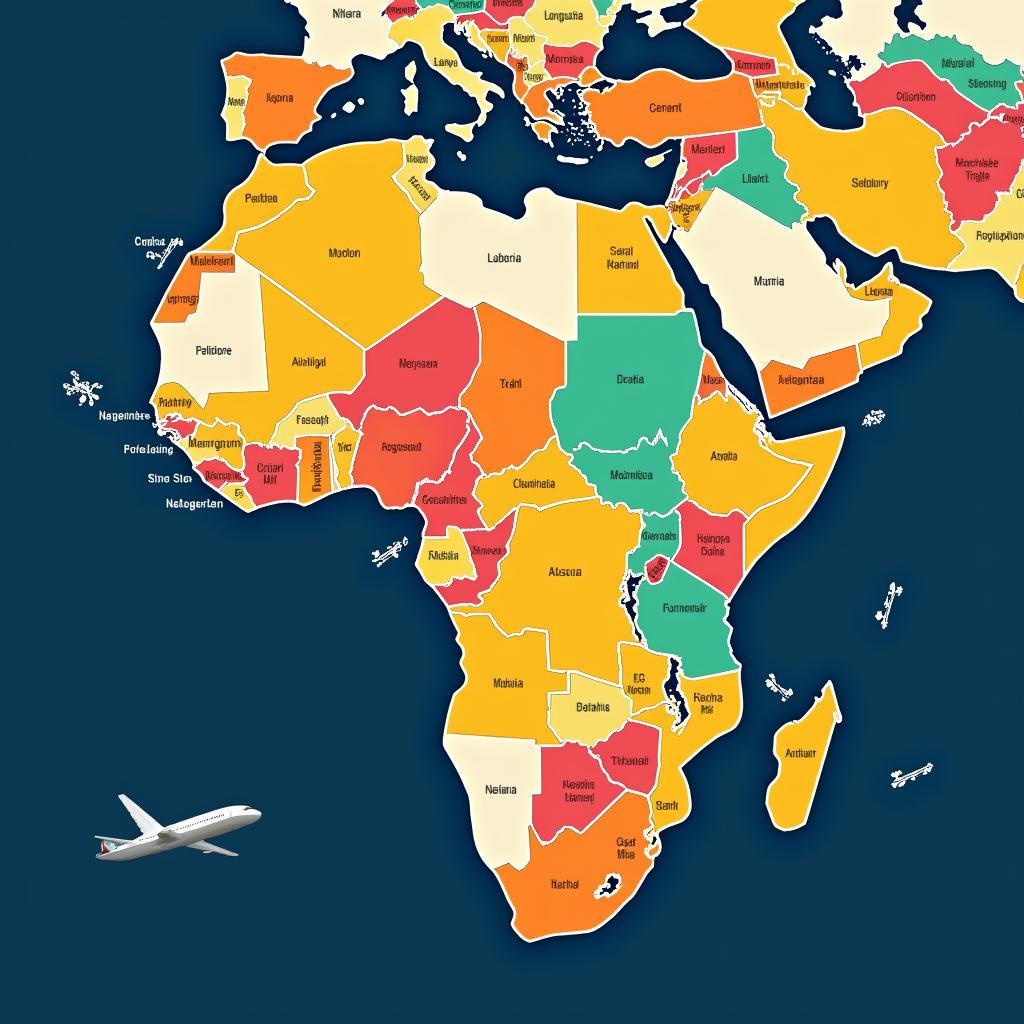Unlocking African Potential: The African Growth and Opportunity Act (AGOA)
The African Growth and Opportunity Act (AGOA) has been a cornerstone of US trade policy with sub-Saharan Africa since its enactment in 2000. It offers tangible trade preferences to eligible countries, aiming to stimulate economic growth, encourage diversification, and foster stronger trade relationships. This piece delves into the nuances of AGOA, exploring its impact, challenges, and future prospects.
Understanding the African Growth and Opportunity Act (AGOA) Framework
AGOA provides duty-free access to the US market for over 6,000 products from eligible sub-Saharan African countries. This preferential treatment is designed to give African producers a competitive edge, encouraging exports and boosting economic activity. The Act also aims to promote good governance, respect for human rights, and the rule of law in participating countries. Beyond trade, AGOA seeks to strengthen democratic institutions and create a more stable and prosperous Africa. The initiative isn’t simply about opening markets; it’s about fostering sustainable development and empowering African nations to integrate more effectively into the global economy.
This act has been instrumental in facilitating trade between the US and sub-Saharan Africa. For instance, it has helped some countries develop their textile industries and diversify their exports beyond traditional commodities. You can learn more about the act through resources like the African Growth and Opportunity Act.
Impact and Challenges of AGOA
While AGOA has undoubtedly yielded positive results, its impact has been varied across countries. Some nations have leveraged the Act more effectively than others, demonstrating the importance of strong domestic policies and infrastructure to maximize its benefits. The success stories often involve countries that have diversified their exports, invested in value addition, and improved their business environments. However, challenges remain, including limited product diversification, non-tariff barriers, and capacity constraints within some African economies.
One key challenge is the over-reliance on a few key sectors, such as apparel and textiles. This concentration makes these economies vulnerable to shifts in global demand and competition. Furthermore, non-tariff barriers, including sanitary and phytosanitary regulations, can hinder access to the US market, even with duty-free access. Addressing these issues is crucial to unlocking AGOA’s full potential. You can also explore related topics such as achievements of African union to understand the broader context of African development.
What are the eligibility criteria for AGOA?
Countries must meet certain criteria related to good governance, human rights, and market-based economic principles to be eligible for AGOA benefits. These criteria include combating corruption, protecting intellectual property rights, and upholding the rule of law.
How has AGOA affected US trade with Africa?
AGOA has significantly influenced US trade with Africa, particularly in sectors like textiles and apparel. However, the overall trade volume remains relatively small compared to US trade with other regions.
The Future of the African Growth and Opportunity Act
The future of AGOA is a subject of ongoing discussion. As the Act is periodically renewed by the US Congress, there are opportunities to refine its provisions and address emerging challenges. Potential areas of focus include promoting regional integration, strengthening value chains, and supporting the development of more sophisticated industries in Africa. Extending AGOA beyond its current expiration date would provide much-needed certainty for investors and businesses, encouraging long-term planning and sustainable growth.
Experts believe that AGOA should move beyond preferential market access and focus on fostering deeper economic partnerships. This could involve promoting investment, technology transfer, and skills development in Africa. A more holistic approach is essential to ensure that AGOA contributes to sustainable and inclusive development across the continent. For more information about AGOA and related topics, you can explore resources like African Growth and Opportunity Act Facebook.
“AGOA has been a vital tool for promoting trade and development in Africa, but its future success depends on a renewed commitment to partnership and a focus on building sustainable and resilient economies,” says Dr. Abena Oduro, a renowned economist specializing in African trade.
“The true potential of AGOA lies in empowering African entrepreneurs and businesses to compete effectively in the global marketplace,” adds Mr. Kwame Asante, a leading expert on African trade policy. He emphasizes the need for capacity building, technical assistance, and investments in infrastructure to help African businesses take full advantage of the opportunities offered by AGOA. You can also learn more about regional dynamics in Africa from resources like African border countries.
Conclusion
The African Growth and Opportunity Act (AGOA) has played a significant role in shaping US-Africa trade relations. While the Act has faced challenges, it continues to offer valuable opportunities for African countries to expand their exports, diversify their economies, and integrate into the global trading system. Looking ahead, a more strategic and comprehensive approach to AGOA is crucial to ensure its long-term success and maximize its contribution to sustainable and inclusive growth in Africa.
FAQ
- What is the main goal of AGOA? (To stimulate economic growth and development in sub-Saharan Africa through trade preferences.)
- Which countries are eligible for AGOA? (Eligible sub-Saharan African countries that meet certain criteria related to good governance and economic policies.)
- What are the key benefits of AGOA? (Duty-free access to the US market for a wide range of products.)
- What are some of the challenges faced by AGOA? (Limited product diversification, non-tariff barriers, and capacity constraints.)
- How can AGOA be improved in the future? (By focusing on regional integration, strengthening value chains, and promoting sustainable development.)
- What is the role of the US Congress in AGOA? (The US Congress periodically reviews and renews the Act.)
- How can I find more information about AGOA? (Various online resources and government websites provide detailed information about AGOA.)
Need further assistance? Contact us 24/7. Phone: +255768904061, Email: kaka.mag@gmail.com, Address: Mbarali DC Mawindi, Kangaga, Tanzania.


